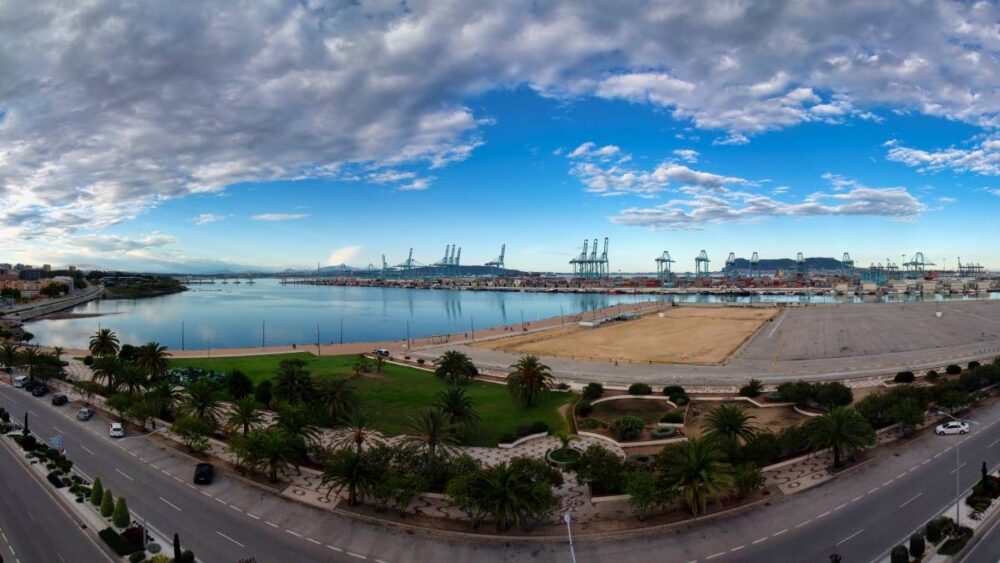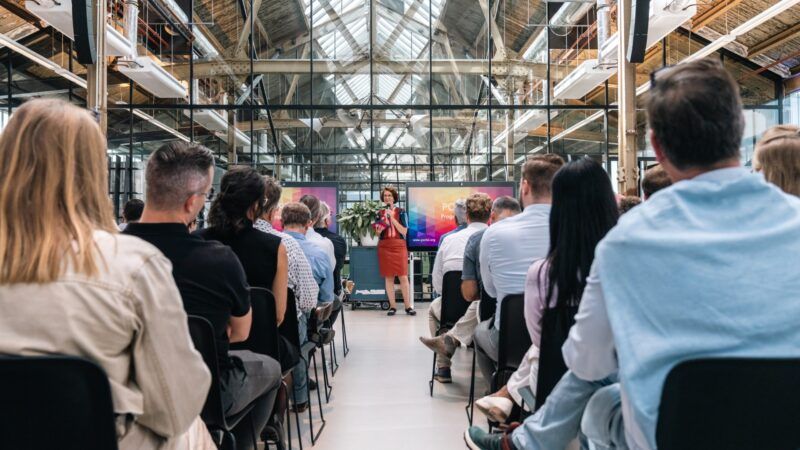 The key to the APBA's innovation management model is its integration into all business units. (GettyImages)
The key to the APBA's innovation management model is its integration into all business units. (GettyImages)
Algeciras award-winning innovation model
The Port of Algeciras program ‘Journey of Innovation-Travesía de la Innovación’ has been recognized by the European Sea Ports Organization (ESPO) with its 2020 Award for its ability to attract innovation and local talent. Francisco Javier de los Santos Ramos, Head of the Technological Development Area, and Jesús Medina Blanco, Head of Information Systems, explain in detail this management model and why the key lies in its integral and transversal development.
 The key to the APBA's innovation management model is its integration into all business units. (GettyImages)
The key to the APBA's innovation management model is its integration into all business units. (GettyImages)
The twenty-second edition of the ESPO Award recognized the work of the Port Authority of the Bay of Algeciras (APBA) in integrating innovation as part of the integral management of the organization as established in the ‘Journey of Innovation-Travesía de la Innovación’ program. This is the second accolade that the APBA received in 2020, since in April it became the first Spanish port to receive a UNE 166002 certification that distinguishes its management in Research, Development and innovation (R&D&i).
"In a very embryonic first phase we established the innovation framework that we currently have, based on the integration between innovation and business and throughout the life of the company, not only for a certain period of time," says Jesús Medina Blanco, Head of Information Systems at the APBA, who explains that the 'Journey of Innovation-Travesía de la Innovación' was launched in 2016 with the aim of creating “a culture of systematic innovation in the port, reinforcing our brand and defining better our innovation management systems.”
A successful journey
This systematic, continuous and integrated program in all the business units aims to implement the concept of the Last Generation Port in Algeciras and to consolidate an Innovation Hub specialized in Port Logistics by 2030.
With the implementation of the Last Generation Port, the new Process Coordination Center and the Digital Operations Orchestration Platform will prescribe actions throughout the port ecosystem, from ship call management to associated services and ground operations, to synchronize all parties involved. This will lead to a highly reliable and efficient port , reducing waiting times, and with an emission reduction of the order of 50%.
As for the Innovation Hub, the Maritime Lake Complex will be completed in 2030, containing several buildings dedicated to innovation in the port-city interface, with the aim of creating an area similar to Silicon Valley specialized in port logistics, where solutions will be created, tested and scaled-up in the Algeciras Port Living Lab to commercialize them globally.
"If we want to be competitive in the long term and differentiate ourselves by the quality of our service we have to continually question how we can improve, aligning business and innovation," says Francisco Javier de los Santos Ramos, Head of the Technological Development Area at the APBA.
This implementation is carried out in three stages, in which the APBA is in the second: the first one consisted of renewing the port's digital ecosystem and proposing a new open innovation framework that integrates technology, innovation and business; the second, to maximize the impact of the projects throughout the port community and to consolidate an open innovation ecosystem, collaborating with start-ups through the Port Living Lab; and the third, to complete the Last Generation Port and the Logistics Innovation Hub to establish new business models.
Local responses to global challenges
The objectives that the APBA wants to achieve with its innovation program seek to answer three questions that most of the world's main ports have asked themselves: How to be smarter, using data to make better decisions? How to become a "Just-In-Time" port, with no waiting times or downtime? How to achieve net emissions close to zero in all port activity?
“In this sense, there are global challenges that coincide with our strategy, but in our case, being a very active port with around 30,000 calls a year, with a significant transshipment component and a very complete portfolio of ship services, the concept Just-In-Time or Operationally Excellent Port is a differentiator. This way, a large part of our efforts are focused on how to synchronize all the agents involved in the passage of merchandise through the port, enhancing the role of the Port Authority as an 'Orchestrator of the Port Ecosystem',” argues Francisco Javier de los Santos Ramos.
For the head of the Technological Development Area, logistics is the example of a global industry, with common clients and challenges to other ports, but emphasizing that each port authority has its specificity. “Logistics is a competitive advantage for many business models, from Inditex to Alibaba. This demand is transferred to us due to our role as a node in the logistics chain. As port authority we have a lot to contribute,” he continues. In this sense, sharing experiences and collaborations with other national and international ports has become a common practice of the Andalusian port to innovate together.
In addition to the award granted by the ESPO, Algeciras is the first Spanish port to obtain the UNE 166002 certification, which recognizes the maturity and competitiveness of its R&D&i management
Attracting talent
Another of the APBA's strategy pillars is the joint work they carry out with start-ups in the Algeciras Port Living Lab, a full-scale laboratory the port makes available for start-ups to co-create, test and demonstrate innovative impact solutions in the port logistics sector. This model is defined by its open and decentralized innovation, in which the collaboration and participation of different actors that generate an innovation ecosystem stands out.
“We understand this collaboration as a synergistic relationship in which both parties obtain a lot of value. We contribute with our physical and digital assets and we receive a lot of talent from these companies that help us solve specific challenges, ” shares Francisco Javier de los Santos Ramos.
The most outstanding example is the implementation of the Port Collaborative Decision-Making (PortCDM) concept after conducting a pilot test in 2017 together with the main actors of the port community. It consists of a digital platform that allows the exchange of data in real time from a single centralized and reliable point with the final purpose of improving the efficiency of processes during the scale of ships in a holistic way and reducing the carbon footprint in transport maritime. After running the first tests in a real operating scenario, it is currently in the last production phase.
The ‘Journey of Innovation-Travesía de la Innovación’ also includes workshops, symposia, conferences, competitions for employees, students and companies. One of the latest initiatives was the innovation contest, which rewards the best external and internal ideas and the most voted by the public in its innovation portal.
“We are very satisfied with the work done to consolidate this innovative culture. However, we are not conformists and we are already thinking about how to continue increasing the impact among our community beyond 2030. The main thing is to have a clear vision of the future and to know where we are going, ” concludes Jesús Medina Blanco.

Dr. Francisco de los Santos, Head of the Technological Development Area at the APBA
His main responsibility is to lead the digital transformation of Algeciras Port and consolidate Innovation as a core business process. He holds an MSc in Civil Engineering, an Executive Master in Telecom Management and IT, a Ph.D. in Port Engineering, and an Executive MBA from IESE Business School.

Jesús Medina, Head of Information Systems at the APBA
His main mission is to ensure the correct relationship and integration between the Technological Development Area and the rest of the Business Units of the Port Authority, identifying, channeling and aligning the business needs with the IT and innovation strategy. He is a Telecommunications Engineer from the University of Seville, Prince2 Practitioner and ITIL Intermediate.





